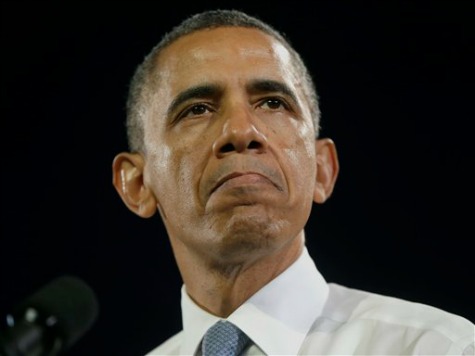(AP) For Obama, Congress, a last grasp at immigration
By JIM KUHNHENN
Associated Press
WASHINGTON
His agenda tattered by last year’s confrontations and missteps, President Barack Obama begins 2014 clinging to the hope of winning a lasting legislative achievement: an overhaul of immigration laws.
It will require a deft and careful use of his powers, combining a public campaign in the face of protests over his administration’s record number of deportations with quiet, behind-the-scenes outreach to Congress, something seen by lawmakers and immigration advocates as a major White House weakness.
In recent weeks, both Obama and House Speaker John Boehner, R-Ohio, have sent signals that raised expectations among overhaul supporters that 2014 could still yield the first comprehensive change in immigration laws in nearly three decades. If successful, it would fulfill an Obama promise many Latinos say is overdue.
The Senate last year passed a bipartisan bill that was comprehensive in scope that addressed border security, provided enforcement measures and offered a path to citizenship for 11 million immigrants in the United States illegally. House leaders, pressed by tea party conservatives, demanded a more limited and piecemeal approach.
Indicating a possible opening, Obama has stopped insisting the House pass the Senate version. And two days after calling Boehner to wish him happy birthday in November, Obama made it clear he could accept the House’s bill-by-bill approach, with one caveat: In the end, “we’re going to have to do it all.”
Boehner, for his part, in December hired Rebecca Tallent, a former top aide to Sen. John McCain and most recently the director of a bipartisan think tank’s immigration task force. Even opponents of a broad immigration overhaul saw Tallent’s selection as a sign legislation had suddenly become more likely. Boehner also fed speculation he would ignore tea party pressure, bluntly brushing back their criticism of December’s modest budget agreement.
If successful, an immigration compromise could restore some luster to Obama’s agenda, tarnished in 2013 by failures on gun legislation, bipartisan pushback on his efforts to take military action against Syria and the disastrous enrollment start for his health care law.
Obama has repeatedly argued that final immigration legislation must contain a path toward citizenship for immigrants who are in the United States illegally. Opponents argue citizenship rewards lawbreakers, and many Republicans are loath to support any measure granting citizenship no matter how difficult and lengthy that path may be.
But some advocates of reform are beginning to rally around an idea to grant immigrants legal status in the U.S. and leave the question of citizenship out of the legislation. In other words, they can work, but not vote.
While strong majorities of Hispanics continue to back a pathway to citizenship, a Pew Research Center poll last month found that being able to live and work in the U.S. legally without the threat of deportation was more important to Latinos by 55 percent to 35 percent.
That the immigration argument is now over legalization versus citizenship is remarkable enough. A 2005 Republican House immigration bill, instead of legalizing immigrants, would have made them felons if they were not authorized to be in the U.S.
Obama, whose support among Latinos has dropped from nearly 80 percent to 55 percent, has been under increasing pressure to use his executive powers to limit deportations. Obama’s Homeland Security Department has deported 1.9 million people during the president’s nearly five years in office, prompting protests ranging from a 22-day fast by activists in Washington to outbursts at Obama public events.
A House Republican retreat later this month could help GOP leaders devise a strategy. Some Republicans and Democrats say Boehner could wait until after the filing deadlines for 2014 primary elections, thus protecting some incumbents from tea party or other conservative challenges. That would mean no meaningful votes until after April.
The White House’s own strategy has not impressed before. Immigration advocates and Democratic lawmakers say the White House last year mistakenly assumed that the bipartisan Senate bill would create enough momentum to bulldoze its way through the House.
___
Associated Press Director of Polling Jennifer Agiesta and AP News Survey Specialist Dennis Junius contributed to this report
___
Follow Jim Kuhnhenn on Twitter: http://twitter.com/jkuhnhenn

COMMENTS
Please let us know if you're having issues with commenting.